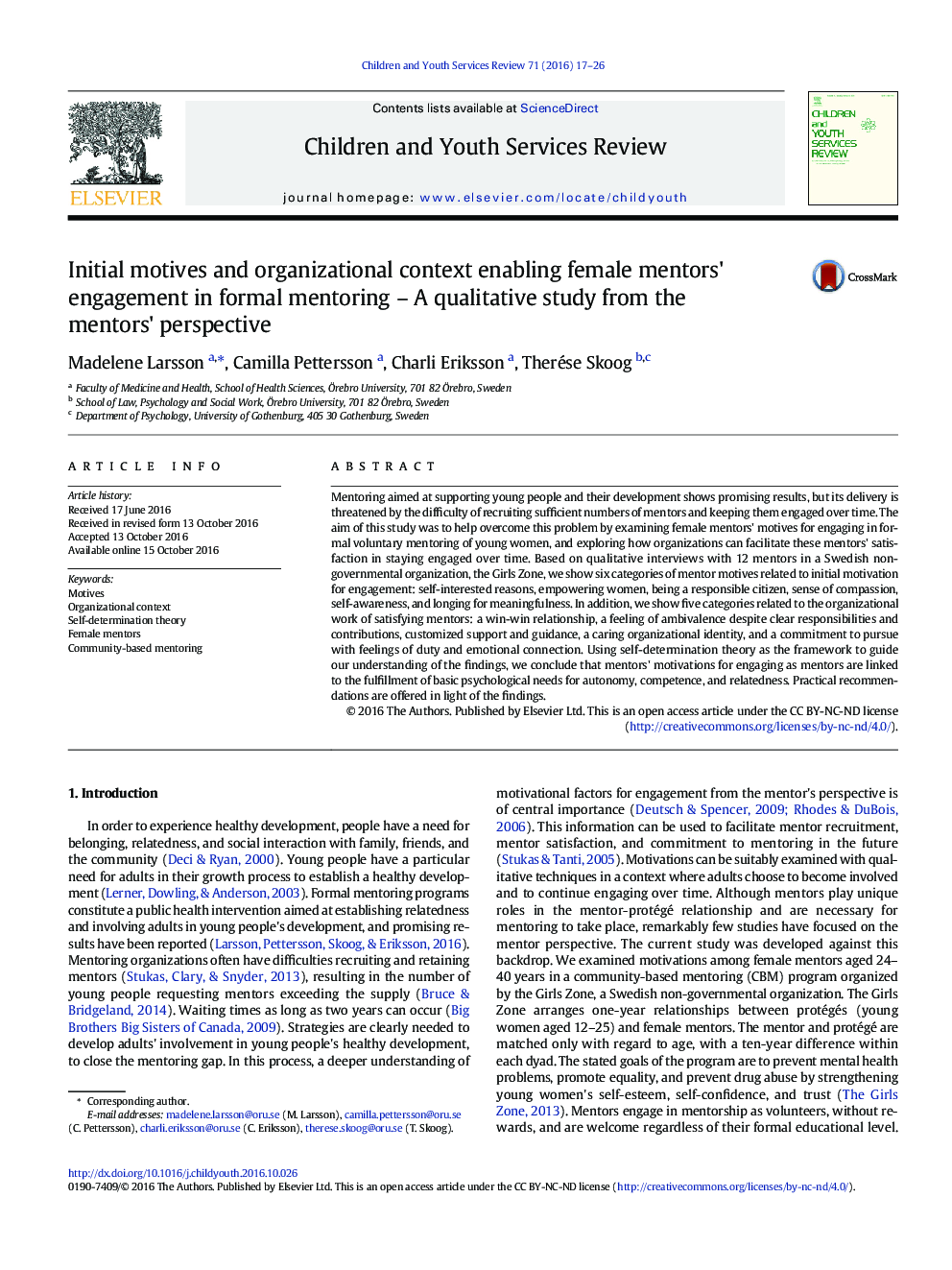| Article ID | Journal | Published Year | Pages | File Type |
|---|---|---|---|---|
| 4936473 | Children and Youth Services Review | 2016 | 10 Pages |
â¢We explore female mentors' experience of mentoring relationships with 10 year younger women.â¢Motives include a desire to relate and to increase the welfare of other women.â¢Female mentors engage when they experience autonomy, relatedness, and competence.â¢We offer suggestions for organizations on how to recruit and retain female mentors.
Mentoring aimed at supporting young people and their development shows promising results, but its delivery is threatened by the difficulty of recruiting sufficient numbers of mentors and keeping them engaged over time. The aim of this study was to help overcome this problem by examining female mentors' motives for engaging in formal voluntary mentoring of young women, and exploring how organizations can facilitate these mentors' satisfaction in staying engaged over time. Based on qualitative interviews with 12 mentors in a Swedish non-governmental organization, the Girls Zone, we show six categories of mentor motives related to initial motivation for engagement: self-interested reasons, empowering women, being a responsible citizen, sense of compassion, self-awareness, and longing for meaningfulness. In addition, we show five categories related to the organizational work of satisfying mentors: a win-win relationship, a feeling of ambivalence despite clear responsibilities and contributions, customized support and guidance, a caring organizational identity, and a commitment to pursue with feelings of duty and emotional connection. Using self-determination theory as the framework to guide our understanding of the findings, we conclude that mentors' motivations for engaging as mentors are linked to the fulfillment of basic psychological needs for autonomy, competence, and relatedness. Practical recommendations are offered in light of the findings.
